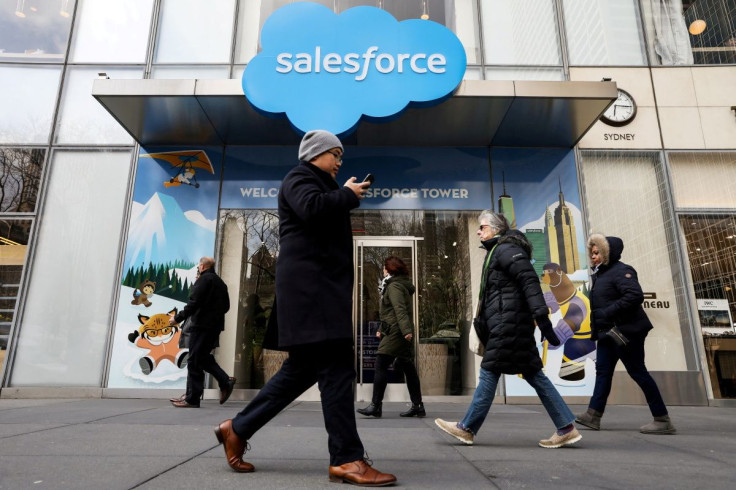Salesforce's Stock Could Be A Value Trap
Salesforce's stock may look like a value bargain this week, following a sell-off on Wall Street after the company reported Q2 financial results. And it may look even more of a deal as its current price is well-below intrinsic value.
But it isn't, as its shares continue to be a "value trap," destroying rather than creating value.
For years, Salesforce has been delivering solid revenue gains to appease momentum investors on Wall Street, including one in Q2, 2022. The CRM giant reported a 22% climb in year-over-year sales to $7.7 billion, beating analyst estimates.
Management was pleased with the company's performance and cheered the initiation of a share-back program.
"We had another strong quarter, with revenue of $7.7B growing 22% year-over-year and 26% in constant currency, showing yet again the durability of our business model," Salesforce Chair and Co-CEO Marc Benioff said in a statement following the Q2 report. "And, we're thrilled to initiate our first-ever share repurchase program to continue to deliver incredible value to our shareholders on our path to $50 billion in revenue in FY26."
"Our results demonstrate the strength and diversity of our product portfolio across regions, industries, and segments," Salesforce Co-CEO Bret Taylor said. "In this more measured buying environment, our Customer 360 portfolio is even more strategic and relevant as our customers focus on productivity, efficiency and time to value."
But Wall Street didn't share management's sentiment. Instead, it sent Salesforce's stock more than 6% lower in the opening session, the day after the Q2 financial results were released. Perhaps, Wall Street was unhappy with the company's guidance going forward. But it may be more severe than that, as the company's shares have lost close to one-third of their value from the peak. Most notably, currently at $170, they are trading well below their intrinsic value, which GuruFocus estimates to be $280.26.
What can explain this huge gap between market price and fundamental value? A poor allocation of capital that has failed to create value. Over the past decade, Salesforce's economic profit, or economic value added (EVA), has remained decisively negative, according to GuruFocus. EVA is the difference between the return on invested capital (ROIC) and the weighted average cost of capital (WACC). A negative economic profit means the company destroys value as it grows.
A closer review of the two components of Salesforce's EVA reveals that the company pays a great deal to raise capital and earns little or no return on it. As of August 2022, the company had an ROIC of 0.71% and a WACC of 7.92%. That gives an EVA of-7.22%, close to where it was ten years ago.
Simply put, Salesforce's management is doing a poor job of allocating capital effectively in pursuing new business opportunities. While that may be normal for emerging technology companies, it's hardly the desired situation for a two-decade-old company. At least to the intelligent investors who know how to analyze financial statements.
The disconnect between growth and value could be traced to the company's business strategy. Over the years, the customer relationship management pioneer has grown exponentially by buying up other companies, including the $27.8 billion acquisition of Slack Technologies Inc.
The problem with this fast-track growth strategy is that it isn't sustainable, as the owners of target companies auction them to the highest bidder. And that leaves very little room for adding any economic value to the capital that finances these deals. Moreover, if overdone, investment in inflated acquisitions may destroy rather than create value, as seems to be the case with Salesforce acquisitions.

© Copyright IBTimes 2024. All rights reserved.




















